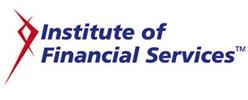"I have known David Henderson for seven years and during that time, he has had full control of my financial investment portfolio through retirement and the consequences of adjustment to widowhood. I have never had any cause to doubt his skilled advice and commitment. This has been delivered through a friendly and totally reliable relationship. I have regarded him as a trustworthy friend and in terms of the financial manoeuvres, his practical adjustments have (thus far in a volatile world!) all been safe and successful. He has been helpfully reassuring at times based on an extensive knowledge of theway the markets and global economy works I find this very educational. I have recommended his services to several friends all of whom have commented most favourably after his input totheir finances."
Investment Options Strategy
First, it is important to distinguish between savings and investments.
Savings
Savings are often for a specific short-term need or purchase, like a holiday or a new car, and are generally funds that you can set aside today, but that you need to have accessible – if the need arises.
Investments
Investments are designed to be held for a longer time, usually a term of at least 5 years.
You should be comfortable tying your money up for that period of time, so you should not consider investments until you already have some savings in place.
Most investments offer the prospect of potentially higher returns than a deposit account, but there are no guarantees. Returns, risk and volatility determine the right vehicle for you to invest in.
There are many different options through which to make an informed investment. Here are just a few:
• National Savings & Investments* – these operate like bank accounts, to a certain extent, and are generally considered low risk as they are backed by the government. They include some tax-free products.
• Bonds & Gilts - generally considered to be lower risk than direct equity (share) investment, but the value can still fall as well as rise.
Government Bonds are the most secure (known as Gilts in the UK), but the return is lower than for a Corporate bond. These are issued by private companies raising capital, and are ‘rated’ on the assessed ability of the issuer to maintain interest payments and repay the loan.
‘High Yield’ bonds, also known as junk bonds, are more risky, as the issuer is rated BB or below. Ratings can be as high as AAA for those considered to be most secure, or ‘Investment Grade’.
There are corporate bond funds, which invest in a range of these loans.
• Equities (shares) – Historically these have offered a better return for investors over the very long term. Although the increased risk can be rewarded potentially by investment returns in excess of what is available from traditional bank or deposit accounts. There are no guarantees for future performance when investing in company shares.
• Investment ‘Funds’ – There are hundreds of investment funds available, each with their own specific focus: they can specialise in one particular sector, such as construction, or invest geographically, perhaps only buying shares in American companies. Specialist investment managers will manage a fund and aim to diversify the risk and maximise the return by investing across a spread of shares or bonds in their area of focus.
• Property – Income from commercial property funds is often derived from contractually binding contracts of rent paid by business tenants to occupy property. Consequently leases are often arranged over a long period and generally include an ‘upwards only clause’. Added to the rental incomes, property has the added feature of potentially appreciating in value through the valuation placed over time on the physical 'bricks and mortar' assets. (You should bear in mind that any valuation of property is a matter of the valuer’s opinion, rather than a matter of fact.)
As with all investments, property funds are not guaranteed, and values can fall as well as rise. Furthermore, a fund manager may defer your request to cash in for a period of time, as the property in the fund may not always be readily saleable.
New Individual Savings Account – NISA is a tax-efficient product through which you may also be able to invest in certain stocks, shares, bonds or property.
Contact us before making any decisions. We will always explain the risk of any potential investment in detail.
*NOTE: THE FINANCIAL CONDUCT AUTHORITY DOES NOT REGULATE NATIONAL SAVINGS & INVESTMENT PRODUCTS
The value of investments may fall as well as rise.
You may get back less than you originally invested.










